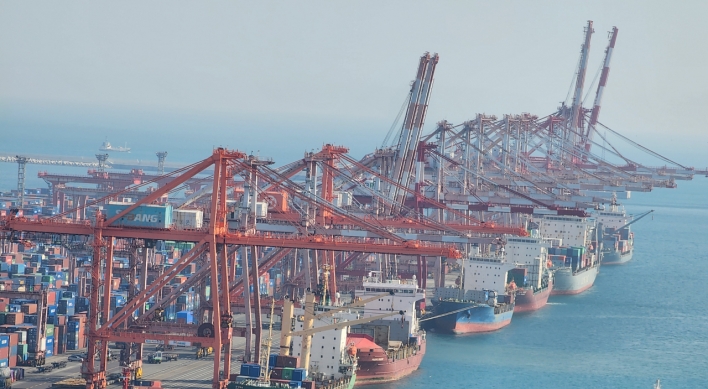Korea to focus on structural, labor reform to fuel growth in 2015
By KH디지털2Published : Jan. 21, 2016 - 11:06
South Korea will focus on pushing forward much needed structural reforms this year in order to create quality jobs for the younger generation and strive to revive domestic demand and exports as part of overall economic policy plan, the government said Thursday.
"We will do our best to create jobs by producing tangible results of structural reform and economic renovation," the finance ministry said in a follow-up of the 2016 economy policy plan released last week.
It said the measures are aimed at removing all hurdles obstructing economic development and job creation.
The government will encourage some 1,150 businesses to accept the so-called wage peak system to reduce the burden on companies who now have to hold on to workers until they turn 60. The money saved from this arrangement will make it possible to hire more young job seekers.
The jobless rate among people between 15 through 29 reached a record high of 9.2 percent in 2015, the highest reading since 1999, and much higher than the 3.6 percent average for the country as a whole.
All government-funded companies and agencies have adopted the payment system which gradually decrease the salaries of employees past a certain age.
The ministry added it will also run a special program to offer consultation, training and job matching services to young people.
It said it will make efforts to convince the parliament to pass a set of highly contested labor reform bills, which have been held off due to heightening political tensions.
The government said the bills are designed to make South Korea's labor market more flexible and give more opportunity to young job seekers and revitalize the economy.
Critics, on the other hand, argue that the laws will pave the way for companies to formally sack underperforming employees and amend employment rules more easily even without consent from workers.
"South Korea is facing a rapid drop in an economically active population, mounting household debt and rigid labor market, which all hurt growth," the government warned.
It claimed that unless there is an increase in productivity and a new growth engine is found soon, Asia's fourth largest economy may go into the kind of protracted, low growth cycle that is afflicting countries like Japan and Spain. (Yonhap)






![[Herald Interview] Mom’s Touch seeks to replicate success in Japan](http://res.heraldm.com/phpwas/restmb_idxmake.php?idx=644&simg=/content/image/2024/04/29/20240429050568_0.jpg&u=)



![[News Focus] Lee tells Yoon that he has governed without political dialogue](http://res.heraldm.com/phpwas/restmb_idxmake.php?idx=644&simg=/content/image/2024/04/29/20240429050696_0.jpg&u=20240429210658)







![[Today’s K-pop] Seventeen sets sales record with best-of album](http://res.heraldm.com/phpwas/restmb_idxmake.php?idx=642&simg=/content/image/2024/04/30/20240430050818_0.jpg&u=)